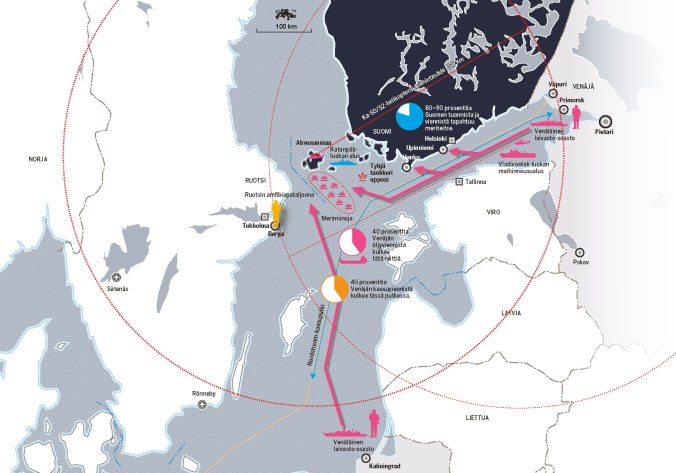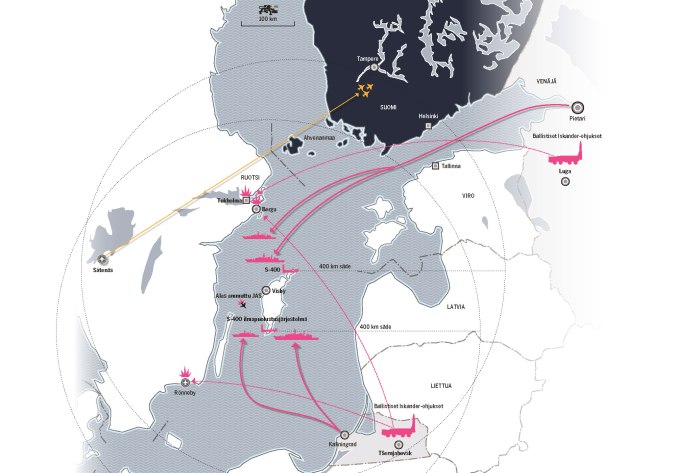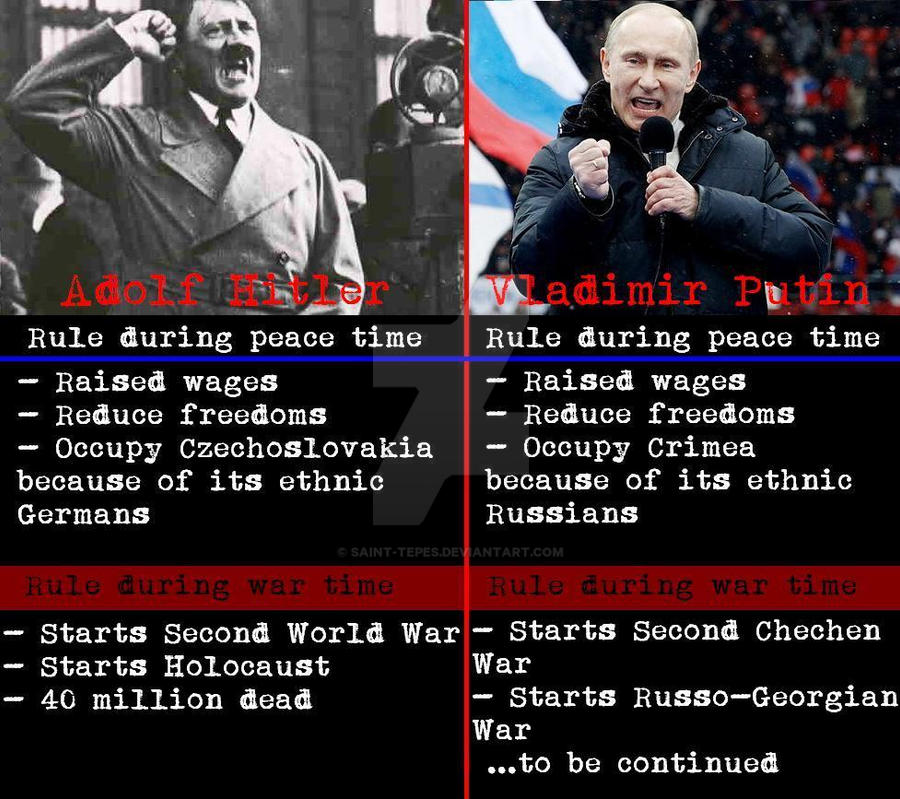Litwin
Platinum Member
Putin’s next target is likely to be a non-NATO nation in the EU (Sweden, Finland) . ok, its not new information, we here all know it very well. The fact is that Muscovite empire is dying, it can not fight a long cold war with the West , putler MUST strike NEW or the gas -station empire will die like Muscovite quasi -Chinggisids empire died in 1917 and soviet commie one in 1991.
which country will be next for vovka putler ? Sweden, Finland, Belarus, or Kazakhstan ? or maybe again Ukraine?
Not many observers would consider the world’s coldest shipping lane a geopolitical hotspot. But that may be about to change. Last week, reports emerged that a new Kremlin policy will require all international naval ships to give Russia 45 days’ notice before entering the Northern Sea Route, which connects the Atlantic and Pacific Oceans via the Arctic waters north of Siberia. Every vessel on the route, where Russia has invested heavily in sophisticated military infrastructure, will also be required to have a Russian maritime pilot on board. Ships found in violation of these restrictions may be forcibly halted, detained, or—in unspecified “extreme” circumstances—“eliminated.”
The Kremlin’s latest threat has gone largely unnoticed, perhaps because it’s no surprise. Russian officials justify the new naval restrictions with a familiar explanation, claiming that “the more active naval operations in the Arctic of various foreign countries” require such a response.
This is the same tactic Russian President Vladimir Putin has used to justify his military adventurism for years: From Georgia in 2008, to Ukraine in 2014, to Syria in 2015, Putin has always laid the blame for Russian aggression squarely at the West’s feet. Kremlin-backed media outlets amplify this message, subjecting audiences to a constant deluge of scaremongering about “NATO encirclement” and pointing to the West’s condemnations of Putin’s actions as evidence of “Russophobia.”
Many wonder what Putin gains from pushing this narrative. In violating international norms, he has become a global pariah. U.S. and European sanctions have dealt serious blows to Russia’s already dismal economy—raising the question of why would Putin pay such a staggering price to carve out a few more pieces of territory.
Those who attempt to answer this question miss the point. In Crimea, eastern Ukraine, South Ossetia, or anywhere else Putin considers Russia’s backyard, territorial gain has never been an end in itself. Putin’s goal today is the same as when he invaded my country in 2008: to tighten his grip on the levers of power in Russia. Whenever Putin’s domestic popularity dips, he either escalates an ongoing conflict or launches a new offensive.
"Ordinary Russian voters may struggle to survive on pensions of $200 each month, but Putin’s base can be proud to live in a superpower.
Putin is both predictable and logical: Invading a weaker neighbor delivers a cheaper and faster ratings boost than, say, improving Russia’s dystopian health care system. It’s no coincidence that Putin’s approval rating peaked in 2015, after the annexation of Crimea. Later that year, as the Russian economy foundered, the intervention in Syria served to shore up patriotism. Moreover, Russia’s actions in Syria marked Putin’s graduation from military adventurism in the former Soviet states to power projection beyond Russia’s “near abroad.”
To be sure, these steps earned Putin harsh criticism from Washington and Brussels. But condemnation from outside Russia only boosts his popularity within. With every foreign election the Kremlin meddles in, every violation of human rights in occupied Crimea, and every time Russian soldiers move barbed-wire fencing to carve out a few more acres of Georgia’s territory, the standard U.S. and European response—a diplomatic expression of “deep concern”—sounds more like a tired cliche.
From the invasion of Georgia to the hybrid offensive in Ukraine, Western leaders have demarcated red line after red line for Putin to trample with impunity"
Russia’s Next Land Grab Won’t Be in an Ex-Soviet State. It Will Be in Europe. – Foreign Policy
which country will be next for vovka putler ? Sweden, Finland, Belarus, or Kazakhstan ? or maybe again Ukraine?
Not many observers would consider the world’s coldest shipping lane a geopolitical hotspot. But that may be about to change. Last week, reports emerged that a new Kremlin policy will require all international naval ships to give Russia 45 days’ notice before entering the Northern Sea Route, which connects the Atlantic and Pacific Oceans via the Arctic waters north of Siberia. Every vessel on the route, where Russia has invested heavily in sophisticated military infrastructure, will also be required to have a Russian maritime pilot on board. Ships found in violation of these restrictions may be forcibly halted, detained, or—in unspecified “extreme” circumstances—“eliminated.”
The Kremlin’s latest threat has gone largely unnoticed, perhaps because it’s no surprise. Russian officials justify the new naval restrictions with a familiar explanation, claiming that “the more active naval operations in the Arctic of various foreign countries” require such a response.
This is the same tactic Russian President Vladimir Putin has used to justify his military adventurism for years: From Georgia in 2008, to Ukraine in 2014, to Syria in 2015, Putin has always laid the blame for Russian aggression squarely at the West’s feet. Kremlin-backed media outlets amplify this message, subjecting audiences to a constant deluge of scaremongering about “NATO encirclement” and pointing to the West’s condemnations of Putin’s actions as evidence of “Russophobia.”
Many wonder what Putin gains from pushing this narrative. In violating international norms, he has become a global pariah. U.S. and European sanctions have dealt serious blows to Russia’s already dismal economy—raising the question of why would Putin pay such a staggering price to carve out a few more pieces of territory.
Those who attempt to answer this question miss the point. In Crimea, eastern Ukraine, South Ossetia, or anywhere else Putin considers Russia’s backyard, territorial gain has never been an end in itself. Putin’s goal today is the same as when he invaded my country in 2008: to tighten his grip on the levers of power in Russia. Whenever Putin’s domestic popularity dips, he either escalates an ongoing conflict or launches a new offensive.
"Ordinary Russian voters may struggle to survive on pensions of $200 each month, but Putin’s base can be proud to live in a superpower.
Putin is both predictable and logical: Invading a weaker neighbor delivers a cheaper and faster ratings boost than, say, improving Russia’s dystopian health care system. It’s no coincidence that Putin’s approval rating peaked in 2015, after the annexation of Crimea. Later that year, as the Russian economy foundered, the intervention in Syria served to shore up patriotism. Moreover, Russia’s actions in Syria marked Putin’s graduation from military adventurism in the former Soviet states to power projection beyond Russia’s “near abroad.”
To be sure, these steps earned Putin harsh criticism from Washington and Brussels. But condemnation from outside Russia only boosts his popularity within. With every foreign election the Kremlin meddles in, every violation of human rights in occupied Crimea, and every time Russian soldiers move barbed-wire fencing to carve out a few more acres of Georgia’s territory, the standard U.S. and European response—a diplomatic expression of “deep concern”—sounds more like a tired cliche.
From the invasion of Georgia to the hybrid offensive in Ukraine, Western leaders have demarcated red line after red line for Putin to trample with impunity"
Russia’s Next Land Grab Won’t Be in an Ex-Soviet State. It Will Be in Europe. – Foreign Policy




